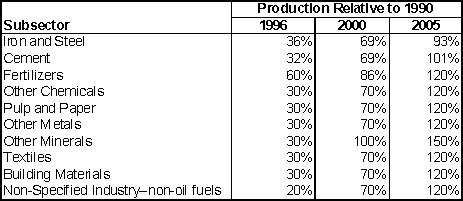Nautilus Institute’s Policy Forum‘s focus is on the timely publication of expert analysis and op-ed style pieces on the foremost of security-related issues to Northeast Asia. Its mission is to facilitate a multilateral flow of information among an international network of policy-makers, analysts, scholars, media, and readers. Policy Forum essays are typically from a wide range of expertise, political orientations, as well as geographic regions and seeks to present readers with opinions and analysis by experts on the issues as well as alternative voices not typically presented or heard. Feedback, comments, responses from Policy Forum readers are highly encouraged.
Policy Forum 98-03: Democracy and the Korean Economic Crisis
This essay, “Democracy and the Origins of the 1997 Korean Economic Crisis,” was written by Jongryon Mo, Assistant Professor of International Relations and Associate Director of the Center for International Studies, and Chung-in Moon, Professor of Political Science at the Graduate School of International Studies, at Yonsei University. The essay explores the relationship between democratic development and the Economic crisis in the ROK. This essay will be forthcoming as the Epilogue in “Democracy and the Korean Economy,” eds. Chung-in Moon and Jongryn Mo, Hoover Institution Press.
Go to the articlePolicy Forum 98-02: DPRK Energy Sector: Current Status and Scenarios for 2000 and 2005
Provides a brief overview of the recent and current status of the DPRK energy sector, as well as some of the factors that will influence the development (or continued decline) of the sector over the next eight years and beyond.
Go to the articleDiscussion of NAPSNet Forum #13 — Kim Jong-il’s Peace Policy
Discussion of NAPSNet Forum #13 — Kim Jong-il’s Peace Policy Discussion of NAPSNet Forum #13 — Kim Jong-il’s Peace Policy Northeast Asia Peace and Security Network DISCUSSION OF “KIM JONG-IL’S PEACE POLICY” #13B — January 12, 1998 The is intended to provide expert analysis of contemporary peace and security issues in Northeast Asia, and an […]
Go to the articlePolicy Forum 98-01: Kim Jong-il’s Peace Policy
Kim Myong Chol is an ethnic Korean born and living permanently in Japan who has worked as a reporter and editor at “The People’s Korea” and has written extensively on DPRK perspectives on Korean and international relations. Mr. Kim previously contributed to NAPSNet Policy Forum Online #4, “DPRK Perspectives on Ending the Korean Armistice”.
Go to the articleTwo Scenarios of Nuclear Power and Nuclear Waste Production in Northeast Asia – Full Text

Two Scenarios of Nuclear Power and Nuclear Waste Production in Northeast Asia By David VON HIPPEL and Peter HAYES Nautilus Insitute Prepared for Yonsei University Department of Political Science December, 1997 Abstract As economic growth in the countries of Northeast Asia continues, there will be an increasing need for the services that energy, and particularly […]
Go to the articlePolicy Forum 97-23: North Korea’s Political Problem
This essay was originally prepared for the conference on “Korea In The 21st Century: In Search for Peace, Unification and Prosperity,” held at Chongju University, ROK, June 2-3, 1997, and appeared in the summer 1997 issue of “The Economics of Korean Unification.” The author, Young Whan Kihl, is a professor at Iowa State University. Kihl argues that the foremost political problem of the DPRK today is the survival of the Kim Jong-il regime. Ultimately, Kim will need to build his own charisma via achievement-oriented performance. The strategic goal of the DPRK continues to be forcing US troop withdrawal from the ROK, so as to enable the DPRK to realize its dream of Korean reunification in its own terms, i.e., the communization of the ROK by whatever means are deemed necessary, including the use of force.
Go to the articlePolicy Forum 97-22: Managing the Commons: The Future Direction of Environmental Sustainability in Southeast Asia
Argues that balancing the need for industrial development and environmental protection will require more than establishing green working groups or tightening anti-pollution standards; it will require a fundamental shift from a policy of pollution command-and-control to a system of environmental management as the basis of a regional sustainable development vision.
Go to the articlePolicy Forum 97-21: Monitoring the Agreed Framework
This essay assessing the current status of the US-DPRK “Agreed Framework” was written by Ralph Cossa Executive Director of Pacific Forum CSIS in Honolulu, Hawaii, a policy-oriented research institute with programs on security, political, economic, and environmental issues that operates as the Asia-Pacific arm of the Center for Strategic and International Studies in Washington, DC. Cossa is a political-military affairs and national security strategy specialist with extensive experience in US security policy-making in the Asia-Pacific and Near East-South Asia regions, including service as a USAF colonel and former special assistant to the Commander-in-Chief, US Pacific Command. Previous distributions of Cossa’s writings through NAPSNet include his analysis of the then-upcoming four-party Korean peace talks preliminary meeting (see “Four-Party Peace Talks Preliminary Meeting” in the Analysis section of the August 4 Daily Report) and his participation in the previous Forum discussion of the December 1996 DPRK statement of “regret” for the submarine incursion incident (see Policy Forum Online #97-01B).
Go to the articleTWO SCENARIOS OF NUCLEAR POWER AND NUCLEAR WASTE PRODUCTION IN NORTHEAST ASIA OCTOBER 30, 1997

ANNEX A: UNDERLYING ASSUMPTIONS FOR ESTIMATES OF FUTURE ELECTRICITY DEMAND IN THE COUNTRIES OF NORTHEAST ASIA 1. Assumptions driving energy demand growth in China HOUSEHOLD SECTOR The population of China is assumed to increase to 1.45 billion by 2020. The number of households is assumed to increase to 430 […]
Go to the article
